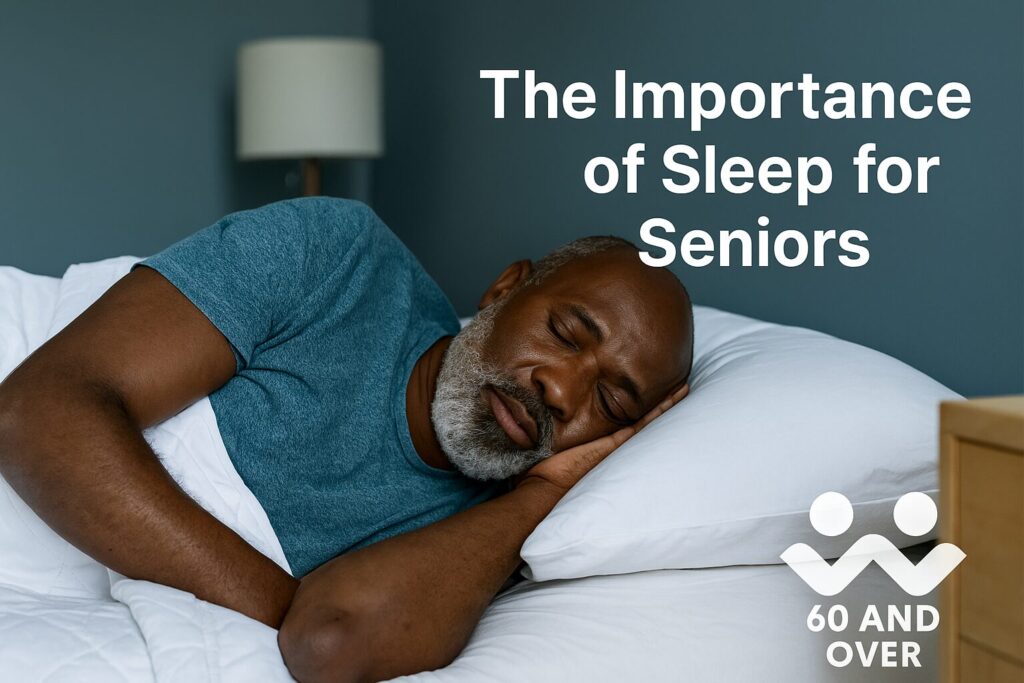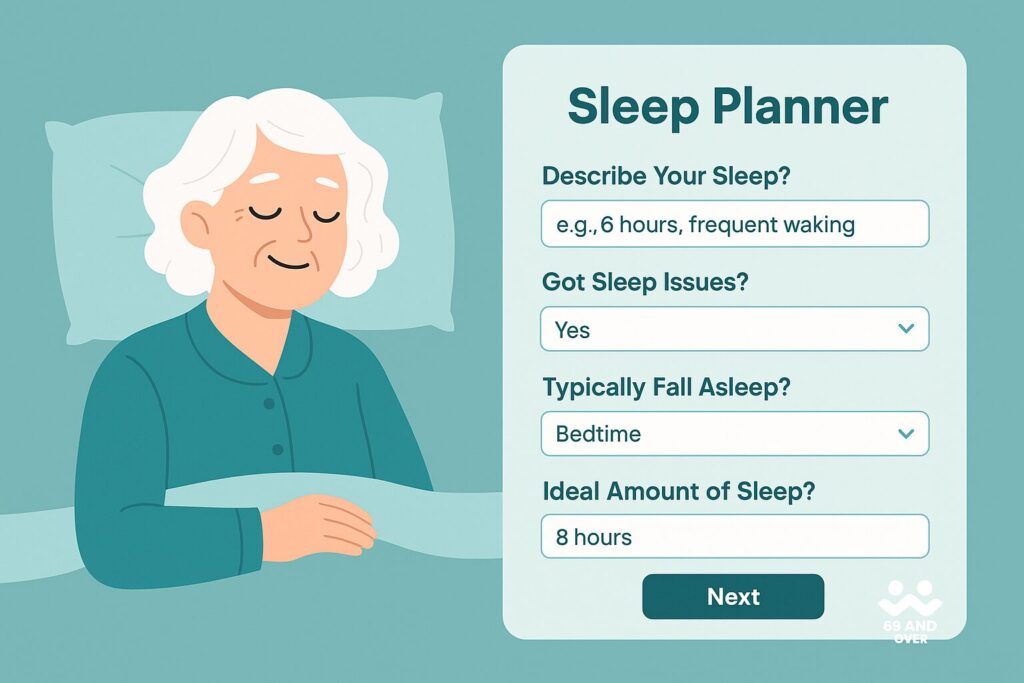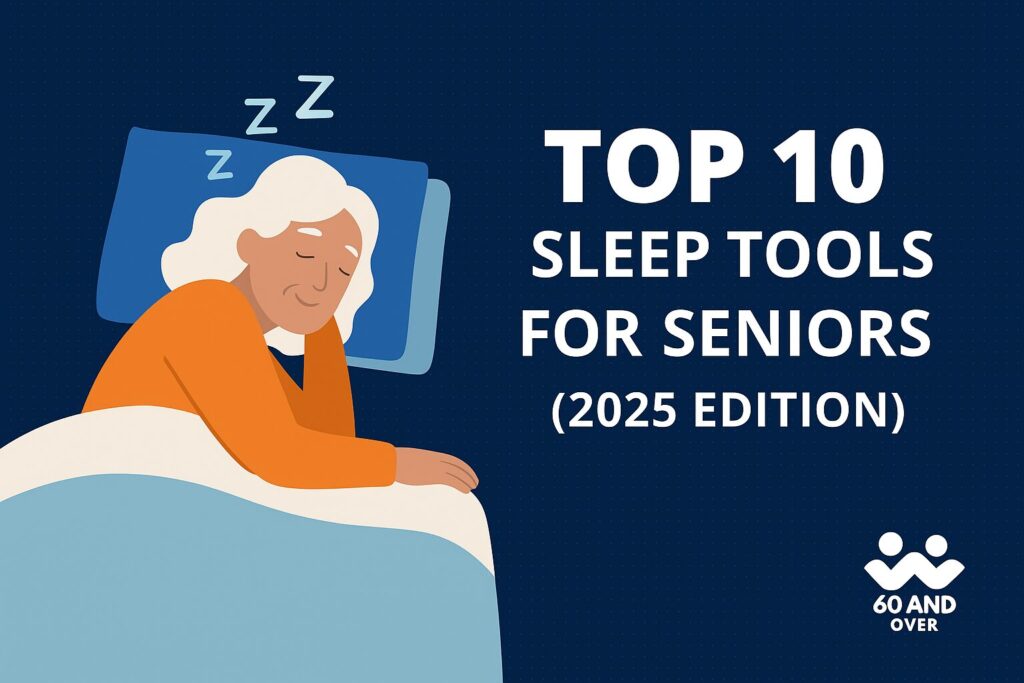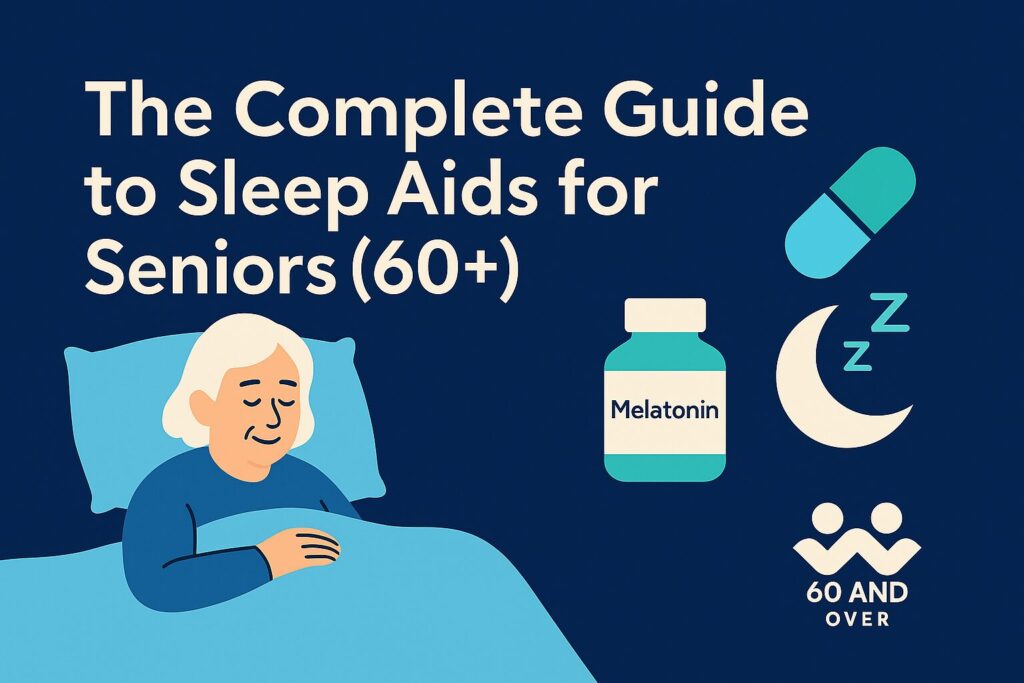How This Prescription Sleep Aid Compares to Safer Natural Alternatives
Many older adults struggle with falling asleep, staying asleep, or waking up too early. For seniors, these sleep changes can be more than inconvenient — they can impact memory, balance, and overall quality of life. While prescription sleeping pills exist, most carry high risks for older adults, including falls, confusion, and dependence.
One medication often considered a safer alternative is ramelteon (brand name Rozerem). Unlike sedatives such as Ambien or benzodiazepines, ramelteon works differently. But is it truly a good option for seniors? Let’s break down how it works, its benefits, risks, and when it might be considered.
What is Ramelteon?
Ramelteon is a melatonin receptor agonist — meaning it works by mimicking the effects of natural melatonin in the brain. Instead of sedating the body like traditional sleep pills, ramelteon helps reset the sleep-wake cycle.
- Approved use: Insomnia characterized by difficulty falling asleep.
- How it’s taken: Usually an 8 mg tablet about 30 minutes before bedtime.
- Difference from other drugs: It does not cause dependence, withdrawal, or rebound insomnia when stopped.
This makes ramelteon fundamentally different from older medications and appealing for older adults who want a gentler approach.
Why It May Benefit Seniors
As we age, melatonin production naturally declines. This can make it harder for seniors to fall asleep and stay asleep. Because ramelteon directly targets the melatonin receptors, it helps compensate for this decline.
Key benefits for seniors:
- Non-habit forming. Ramelteon does not lead to dependence like many prescription sleep aids.
- Supports natural rhythms. Helps restore circadian timing instead of forcing sedation.
- Minimal cognitive effects. Lower risk of memory problems or confusion compared to benzodiazepines or antihistamines.
- No controlled substance status. Unlike Z-drugs or benzos, ramelteon is not regulated as a drug of abuse.
Dosage Guidelines for Adults Over 60
The standard dose is 8 mg before bedtime. Seniors should:
- Take it only when planning for a full night’s sleep (7–8 hours).
- Avoid taking with or right after a heavy meal, as this may delay absorption.
- Use it consistently, since its effects are subtle and build over time.
It’s important to note that ramelteon works best for sleep onset insomnia (trouble falling asleep) and is less effective for those who wake often in the night.
Benefits Compared to Other Prescription Options
For seniors, many commonly prescribed sleep drugs are problematic:
- Benzodiazepines (Valium, Restoril, Ativan) — High risk of falls, confusion, and memory issues.
- Z-Drugs (Ambien, Lunesta, Sonata) — Safer than benzos, but still increase fall and confusion risk.
- Antihistamine-based aids (diphenhydramine in Benadryl/Tylenol PM) — Linked to dementia risk and anticholinergic side effects.
Ramelteon is different — it doesn’t work through sedation but by helping regulate the circadian system. For many seniors, that makes it one of the safer prescription options available.
Risks and Side Effects in Seniors
Although ramelteon is safer than many alternatives, it is not without side effects. Possible issues include:
- Daytime sleepiness or grogginess
- Dizziness or lightheadedness
- Fatigue or weakness
- Nausea
- Worsening of depression in rare cases
The biggest concern for seniors is the risk of dizziness and falls, though this is generally less pronounced than with sedative medications.
Who Should Avoid Ramelteon?
Ramelteon is not appropriate for everyone. Seniors should avoid it if they:
- Have severe liver disease (drug is metabolized in the liver).
- Take strong CYP1A2 inhibitors (like fluvoxamine, an antidepressant).
- Already take other sleep medications that may interact.
- Have untreated sleep apnea or chronic lung disease (consult doctor first).
Safer First-Line Alternatives
While ramelteon is safer than many prescription options, experts still recommend seniors try non-drug approaches first:
- CBT-I (Cognitive Behavioral Therapy for Insomnia): The gold standard, often more effective than medications long term.
- Low-dose melatonin (0.3–2 mg): OTC supplement that mimics the body’s natural rhythm.
- Magnesium supplementation: Supports relaxation and muscle calm.
- Sleep hygiene adjustments: Consistent bedtime, dark cool room, no late caffeine.
Conclusion
So, is ramelteon a good option for seniors?
Yes — but with conditions. Ramelteon is one of the safest prescription sleep aids for older adults, especially for those struggling with sleep onset insomnia. It is non-habit forming, gentle on cognition, and works in line with the body’s natural rhythms.
However, it is not for everyone, and it won’t solve every sleep problem. Seniors with liver issues, medication conflicts, or nighttime awakenings may need other strategies. For most older adults, the best approach is to start with natural options like melatonin or CBT-I, and consider ramelteon only when professional guidance suggests it.
“This article is part of our Complete Guide to Sleep Aids for Seniors, where we cover safe options and tips to improve sleep after 60.”
Ramelteon for Seniors: Frequently Asked Questions
Q: Is ramelteon safe for seniors over 60?
A: Yes, ramelteon is generally considered safer than many prescription sleep aids for older adults. It is non-habit forming and works by targeting melatonin receptors rather than sedating the brain.
Q: What is the usual dosage of ramelteon for seniors?
A: The standard dose is 8 mg taken about 30 minutes before bedtime. Seniors should only take it when they can allow 7–8 hours of sleep.
Q: What are the side effects of ramelteon in older adults?
A: Common side effects include dizziness, fatigue, nausea, and daytime grogginess. In rare cases, it may worsen depression. Seniors should be cautious about dizziness and fall risk.
Q: Who should not take ramelteon?
A: Seniors with severe liver disease, those taking fluvoxamine or other strong CYP1A2 inhibitors, or those already on sedating medications should avoid ramelteon unless approved by a doctor.
Q: Is ramelteon better than melatonin supplements?
A: Ramelteon works on melatonin receptors directly and is FDA-approved for insomnia. Low-dose melatonin supplements may be sufficient for many seniors and are often tried first, while ramelteon is considered when OTC options aren’t enough
Disclaimer: This article is for educational purposes only and is not medical advice. Ramelteon is a prescription medication and should be used only under the guidance of a licensed healthcare provider. Seniors should speak with their doctor before starting, stopping, or changing any sleep aid or prescription. Read our full disclaimer





